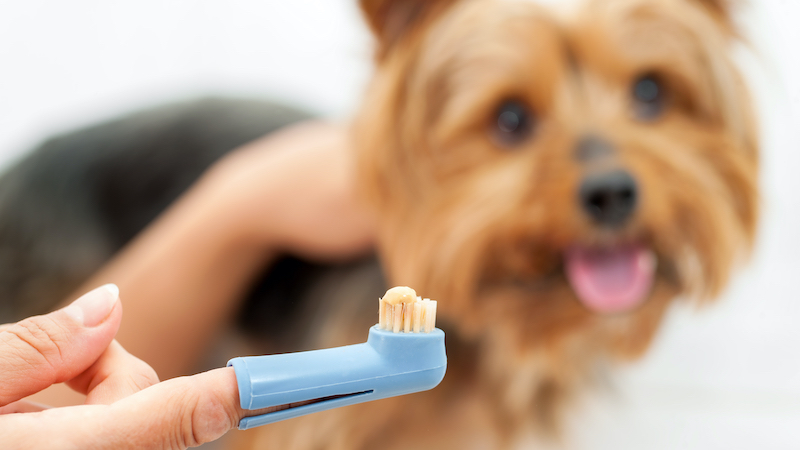Regular veterinary dental check-ups at Animal Care Center of North Jersey, combined with good dental hygiene at home, can increase your pet’s health, vitality, and well-being, and help ensure your pet leads the best life possible.
If left untreated, dental disease can not only be painful and inhibit proper nutrition, but it can also lead to serious systemic issues that may threaten your pet’s overall health before symptoms are noticeable. For these reasons, we strongly consider dental care an important piece of your dog’s or cat’s preventive health-care program.
At Animal Care Center of North Jersey, your pet’s dental appointment includes:
- Oral examinations under anesthesia
- Diagnosis and treatment of periodontal disease
- X-rays
- Supra and subgingival scaling
- Tooth extractions
- Polishing
- Irrigation
- Fluoride application
Should we find any issues, such as evidence of gum or tooth erosion, gingivitis, or excessive plaque buildup, we will discuss this with you and offer treatment options for your pet. We are experienced dental practitioners and are capable of offering a number of dental procedures and oral surgeries.
Dental Exam
Noticed bad breath, extra drooling, or pawing at the mouth? Your pet may suffer from a dental problem. It’s a good time for a dental exam!
Dental Cleaning
A thorough cleaning includes the removal of plaque and tartar and evaluation of all teeth and tissue. We use anesthesia to keep your pet free of discomfort.
At-Home Dental Care
In between hospital visits, check your pet’s teeth regularly for signs of problems. Brushing your pet’s teeth is the single most important procedure you can do to maintain good oral health. If performed regularly, brushing dramatically decreases the incidence of gingivitis and can increase the interval between teeth-cleaning appointments. If you are unsure of how to brush your pet’s teeth, please ask a staff member for instructions.
Symptoms of dental disease to look out for include:
- Bad breath—one of the first signs of dental disease
- A yellowish-brown crust of plaque on the teeth near the gum line
- Red and swollen gums
- Pain or bleeding when your pet eats or when the mouth or gums are touched
- Decreased appetite or difficulty eating
- Loose or missing teeth
If your pet is experiencing any of the above symptoms, please call the Animal Care Center of North Jersey at 973-835-3733 for an appointment. Your pet does not need to spend any more time suffering from oral discomfort.


